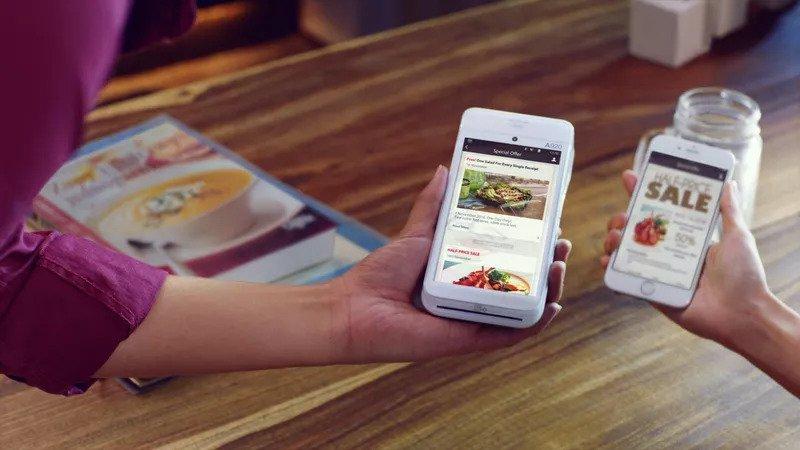Blog
[:swvar:icon:8:]Mandatory electronic payments: the moment to respond to every customer
Good news for those who rarely or never have cash in their pockets. As of this summer, the federal government requires businesses to offer at least one electronic payment method. "So why not suddenly opt for a combination of all payment methods - from card to mobile?" echoes Payworld Belgium.

Customers have less and less cash in their pockets, especially since the Corona crisis, and increasingly expect to be able to pay electronically. From now on, they will be able to do so everywhere, as from 1 July all businesses that come into contact with consumers will have to offer at least one electronic payment solution. This new federal law applies to traditional retailers as well as "small independents", liberal professions, market vendors and even associations.
It has already won over consumers. "Certainly in recent years we have seen the popularity of electronic payments increase," says Ben Cauwelier, Managing Director at Payworld Belgium. "A recent study shows that of all commercial transactions within Europe, only 18% are still cash. A decade ago, we were still at 50%."
Consequently, there are many advantages to electronic payments: it is more convenient, hygienic and secure than cash. And then there is the growing e-commerce that has made electronic payments a habit. "Yet online purchases account for only 10% of all European transactions. As many as 90% of transactions are still done directly - face to face, between merchant and customer," Cauwelier underlines. "It is there that entrepreneurs will henceforth make the difference by also offering payment methods other than cash."
Those who decide to strictly comply with the new regulations will be fine if they provide one electronic payment option. "On the other hand, this is just the right time to respond even better to individual customers," advises Cauwelier. "Otherwise, they will walk in without cash in their pockets but with the idea that payment will work, only to be confronted with the one payment option they do not use. So why not suddenly seize this moment to offer a wider range of electronic payment options?"
Ben Cauwelier immediately dismisses merchants' fears that this will cost a lot of money and devices: "On our Payworld terminal, you can combine all payment methods - from the classic bank card, to contactless smartphone payments, to crypto. The customer chooses! And behind the scenes, things go just as smoothly for the merchant. Whether the payments came in via bank card, smartphone or even via the webshop, everything is paid out together and reported in a uniform way, so you can easily add it into your accounting package."
With its one-stop payment terminal, Payworld also wants to allay fears about the cost of electronic payments: "On the outside it may look like an ordinary terminal, but the configuration allows us to monitor everything remotely and - if necessary - make adjustments. A lot faster and cheaper than human intervention. Thanks to the decentralised control, expansions also work smoothly with one - cheap - push of a button. Nor does it matter whether you have one, two or ten devices and how many transactions they process, we only count the one link you make to our cloud."
The fact that we will soon all be using our bank cards or smartphones to pay is also a good thing for entrepreneurs, assures Ben Cauwelier: "It will increase turnover because you will attract more customers who - now that you have removed all barriers - will also spend more. Think of the shop assistant who can sell an extra pair of shoes because they accept Visa or the garden contractor who can quickly sell some extra fertiliser during annual maintenance because he has his mobile payment terminal in his pocket. By the way, those terminals can do more than just receive. You can also run other applications on them. Useful for the catering industry, for example, where you can take orders, pass them on to the kitchen and pay using the same device. That way, you also save on staff, because now there is often one person needed for the orders and one for the payments.
The future of payments is therefore all about convenience: "Within five years, Payworld will hopefully be very present but barely visible," Cauwelier sums it up with a laugh. "We are going for a fluid way of paying. The main focus here is security, because the fewer actions, interactions and checkpoints, the more the way is open to fraud. It is precisely this combination of convenience and payment security that we want to offer with our technology that can safely and correctly process today's payment methods, as well as those of tomorrow."

